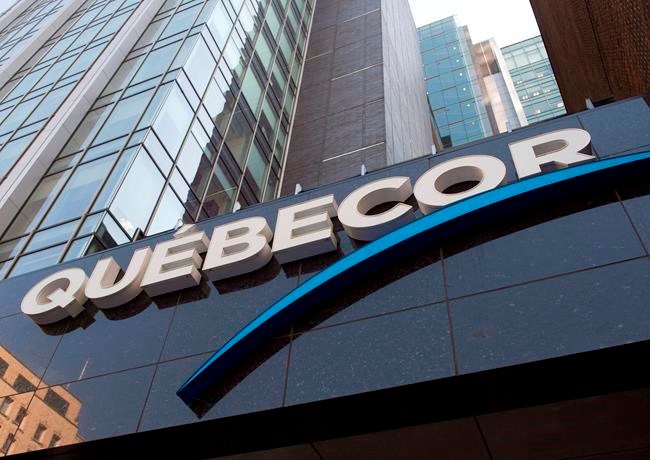MONTREAL — Quebecor Inc. would consider working with other companies inside or outside Quebec if they want to bundle its Videotron Fizz discount mobile service with their own service offerings, top executives of the Montreal-based company said Thursday.
In answer to analyst questions about a possible partnership with Cogeco or another cable company outside of Quebec, Videotron president Jean-Francois Pruneau said it might make sense to strike a commercial partnership.
"But, as you know, it's not a question only for us. It's a question for a partner," Pruneau said. "If we do find a network partner, it makes some sense."
But he emphasized repeatedly that Videotron can't expand outside Quebec without help.
"You can look at Fizz as being an autonomous platform, essentially. That being said, we don't have any network outside Quebec so we would have to find a network partner," Pruneau said
Questions about a possible commercial deal with Cogeco come after it twice received and firmly rejected takeover offers from Altice USA.
Rogers Communications, which has Canada's biggest national wireless network but no cable operations in Quebec, has said it would buy Cogeco's Canadian assets from Altice.
Cogeco has Quebec's second-largest cable network, after Videotron, but also a service throughout parts of southern Ontario and the eastern United States.
Videotron, Cogeco and Rogers all face stiff competition for internet and wireless customers from Bell Canada and Telus Corp., Canada's two largest phone companies.
All of Canada's cable and phone companies are working feverishly to win customers for their new generation of wireless and wireless networks.
Earlier in the call, Quebecor Inc. chief executive Pierre Karl Peladeau accused Bell of using anti-competitive tactics to slow down the roll out of Helix, Videotron's new generation of home video services, in the Abitibi region.
Peladeau — who has fought numerous regulatory and legal battles against Bell and other carriers over the years — said Videotron sent a complaint to the CRTC about this issue.
An emailed statement from Bell said its Cablevision subsidiary in the Abitibi region has always met its obligations for reseller access and it's up to the CRTC to decide on Quebecor's complaint.
Overall, he said, Quebecor's media and telecommunications operations — which are concentrated in Quebec — had done well considering the pandemic.
It earned $140.9 million or 56 cents per share for the three months ended Sept. 30, which was down 20 per cent from $178.5 million or 70 cents per share a year earlier.
Adjusted profit, however, was stable at $173.1 million or 69 cents per share, compared with $173.8 million or 68 cents per share in the third quarter of 2019.
Analysts had estimated Quebecor's adjusted profit would be only 64 cents per share on $1.04 billion of revenues, according to financial data firm Refinitiv.
Quebecor's revenues also exceeded estimates at $1.12 billion, up from $1.07 billion in the prior year.
Telecommunications revenues from Videotron rose seven per cent but media revenues, which depend heavily on advertising sales, fell six per cent while revenue from sports and entertainment events decreased 13.1 per cent, mostly because of COVID's impact.
— With files from David Paddon in Toronto
This report by The Canadian Press was first published Nov. 5, 2020.
Companies in this story: (TSX:QBR.B, TSX:CCA, TSX:CGO, TSX:RCI.B)
The Canadian Press



